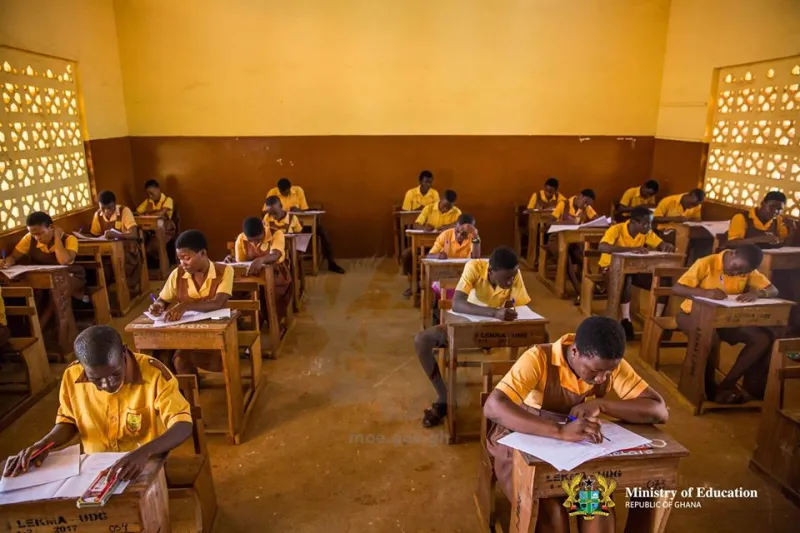
By Dr Andrews AYIKU
Although governments have been active in trying to support startups, lack of funding, lack of mentorship, failure to monitor activities and difficulty for startups to reach markets, have made it tough for startups to succeed.
The Adwumawura Programme, which has been allocated GHC 100 million (GHC 34.5 million representing 34.5% of such an allocation), focused on creating 10,000 new businesses nationwide whilst tracking and providing mentors.
This initiative has the potential to succeed if lessons from the past are heeded, based on 18 years of SME experience. This article looks at the different ways in which the programme empowers startups for sustainability and impactful outcomes throughout the country.
Structured Funding
One of the critical reasons many past entrepreneurship programs failed was the disbursement of lump-sum grants or loans without objective benchmarks to assess progress. In the Adwumawura Programme, the government should implement phased funding tied to clear milestones such as business registration, prototype development, sales volume targets, and employment creation.
This approach mitigates misuse of funds and ensures that startups demonstrate viability before receiving additional capital. It encourages responsibility among beneficiaries and allows public resources to be efficiently allocated.
Comprehensive Mentorship and Capacity Building
A startup will never fly with money alone; the absence of mentoring and entrepreneurship skillsets training, on the other hand, has sunk many initiatives. The government should rope in local business leaders, academia and industry experts in offering structured mentorship programs covering financial management, marketing and operational best practises.
Mentoring them without the capacity to connect with the right resources to avoid rookie mistakes, rolling the foundations of scalability to build on will be the ultimate blocker and that is why Adwumawura should partner with universities and industry associations to create a networked mentorship ecosystem accessible to all beneficiaries. For example, a tech company could be matched with a senior software engineer or product manager to sharpen its product and introduce agile approaches for those unfamiliar with it.
Robust Monitoring and Evaluation Framework
Sustainability requires data-driven decision-making. Another fault of previous initiatives was the insufficient tracking and near-continuous evaluation, which resulted in limited corrective measures being put in place when startups started hitting hurdles. The Adwumawura Programme must establish real-time digital tracking tools that provide near real-time information on key performance indicators such as revenue growth, customer acquisition, cash flow and levels of employment. This will not only help identify challenges early winners also maintain accountability.
Market Access Facilitation and Linkages
No matter how good a startup is, it will fail if it cannot reach the customer or distribution. It also means facilitating Adwumawura beneficiaries’ access to key markets through trade fairs and other opportunities such as through government procurement or private sector businesses. The initiative provides early traction, repeat customers and scalability to startups by allowing them to access local and foreign value chains. Such an enterprise could be backed by the government to represent the country in trade missions abroad or boast well-deserved contracts with export markets for the long haul.
Encouraging Sectoral Diversification
Previous entrepreneurship drives concentrated on few sectors like agriculture or retail resulting in inflation of market and ill fate of nascent schemes. It should target cross-sector investment in sectors such as tech, renewables, probative tech, creative arts and production with the Adwumawura Programme. Diversifying helps mitigate against the market and forces innovation into industries that are under explored giving a better startup ecosystem. Some of this money can be set aside for green energy projects and to attract solar startup companies to northern areas of Ghana that are ripe for solar energy development.
Strengthening Institutional Partnerships
For Adwumawura to be successful, agencies of government must collaborate with financial institutions, universities, accelerators in the private sector. This type of collaboration adds diverse knowledge, minimizes redundancy and optimizes cross-skills. These include working through institutions such as the Ghana Enterprise Authority, Ghana Export Promotion Authority, local chambers of commerce which can play pivotal roles for startups scaling up, gaining credit guarantees and capacity building.
Conclusion
By introducing phased funding based on performance, strengthening mentorship, bolstering in-field monitoring, creating access to local and international markets, diversifying support across sectors, and establishing institutional partnerships, the programme can usher in the entrepreneurship landscape that Ghana has been missing.
Most importantly, not repeating past mistakes and staying engaged with startups over the longer haul. This will go a long way to tackling the youth unemployment challenge that we have in the country as well as creating a new generation of business leaders and innovators who will drive the economic resilience of Ghana for years to come when we actualize Adwumawura and power 10,000 startups.
Dr Ayiku is a Senior Lecturer/SME Industry CoachCoordinator (MBA Impact Entrepreneurship and Innovation) University of Professional Studies Accra
IG: andy_ayiku
@AndrewsAyiku
F: Andyayiku
The post Influencing start-up dev’t through Adwumawura Programme appeared first on The Business & Financial Times.
Read Full Story


















Facebook
Twitter
Pinterest
Instagram
Google+
YouTube
LinkedIn
RSS